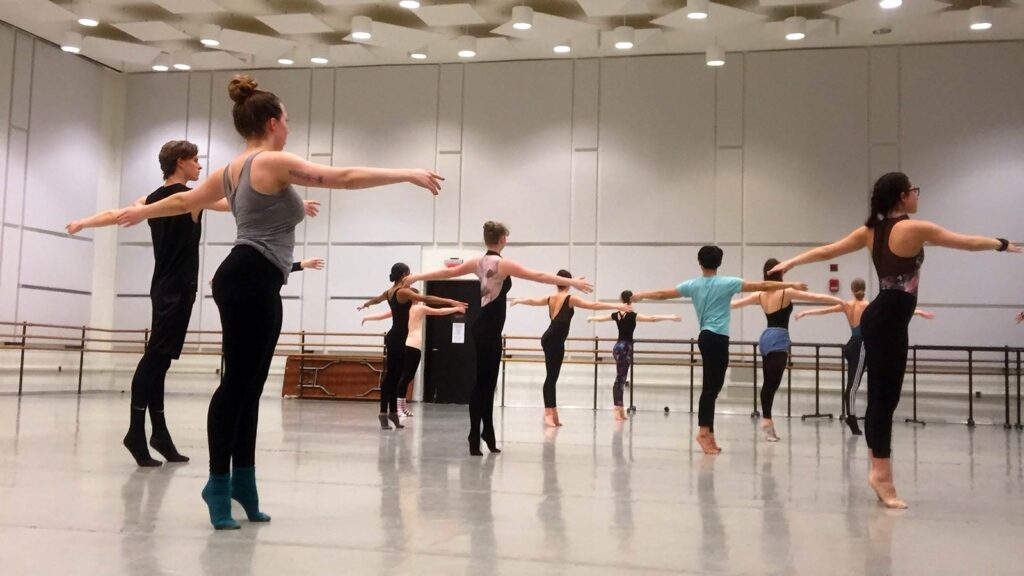Jamaica is renowned for its unique and flavorful cuisine, which blends African, European, and indigenous influences to create dishes that are beloved around the world. As a result, culinary schools in Jamaica have become increasingly popular in recent years, offering students the opportunity to develop their cooking skills while learning about the history and culture of Jamaican cuisine.
Recommended: 13 Top Culinary schools in Montreal: Employment Outlook
These schools provide a range of programs and courses, from short-term workshops to full-time professional training, catering to the needs of both amateur cooks and aspiring chefs.
With expert instructors and state-of-the-art facilities, culinary schools in Jamaica offer a comprehensive and immersive education in the art and science of cooking.
How to Get Study Visa to Jamaica
If you are planning to study in Jamaica, acquiring a study visa is a necessary requirement. Although the process of obtaining a visa may appear overwhelming, it can be uncomplicated if you follow the appropriate steps. This article presents a step-by-step guide to obtaining a study visa to Jamaica.
- Step one involves choosing your preferred school and program. Before commencing the visa process, research different colleges and universities in Jamaica offering your desired program. Once you have found the appropriate institution and program, apply, and receive acceptance before applying for a study visa.
- Step two is gathering the necessary documents. After receiving your acceptance letter, ensure you collect all the required documents for your visa application. These documents include a valid passport, passport-sized photos, a completed visa application form, proof of acceptance into a Jamaican institution, and proof of financial support. It is advisable to check the Jamaican embassy’s website for a comprehensive list of the necessary documents.
- Step three is to apply for a study visa. Once you have gathered all the necessary documents, you can apply for a study visa either online or in person at the Jamaican embassy or consulate in your country. Ensure to follow the instructions carefully and pay the visa application fee. Additionally, you may need to schedule an interview appointment.
- Step four requires attending an interview if required. The embassy may require an interview to assess your application’s legitimacy and determine if you are a genuine student. During the interview, be prepared to answer questions about your studies, finances, and intentions in Jamaica.
- Step five is to wait for your visa to be processed. After the interview, you will need to exercise patience as the visa processing period may take several weeks or months. Once your visa application is approved, you can travel to Jamaica and begin your studies.
- Step six requires registering with local authorities. Upon arriving in Jamaica, all international students must register with the nearest police station to satisfy the legal requirement. You will need to provide them with your passport and visa information.
In conclusion, acquiring a study visa to Jamaica may appear daunting, but following the steps outlined in this article can make it an uncomplicated process. Start by choosing your school and program, gathering the required documents, applying for a visa, attending an interview (if necessary), waiting for your visa, and registering with the local authorities. With the appropriate preparation and patience, you can obtain a study visa and pursue your academic aspirations in Jamaica.
Recommended: 11 Best Culinary schools in Europe: Salary & Employment Prospects
The List of Culinary Schools in Jamaica
Whether you are looking to master classic Jamaican dishes like jerk chicken and ackee and saltfish or explore more contemporary culinary techniques, culinary schools in Jamaica provide an excellent foundation for pursuing your passion for cooking. With a focus on creativity, technique, and cultural understanding, these schools offer a unique and enriching experience for anyone looking to enhance their skills in the kitchen.
The University of Technology
The University of Technology, Jamaica (UTech) is one of the oldest and most reputable culinary schools in Jamaica. The institution was established in 1958 as the Jamaica Institute of Technology and later became a university in 1995.
The School of Hospitality and Tourism Management (SHTM) at UTech offers a range of programs, including a Bachelor of Science in Culinary Arts Management and a Master of Science in Hospitality and Tourism Management. The SHTM also offers short courses and professional development programs for individuals who want to enhance their culinary skills. Find more information here.
The Runaway Bay Heart Hotel and Training Institute
The Runaway Bay Heart Hotel and Training Institute is another culinary school in Jamaica that was established to train and develop culinary professionals. The institute was founded in 1993 by the Jamaican government in partnership with the Heart Trust/NTA (National Training Agency).
The Runaway Bay Heart Hotel and Training Institute offers a range of culinary programs, including a two-year diploma in Culinary Arts and a one-year certificate in Food and Beverage Operations. The institute also offers short courses in various areas of culinary arts, such as pastry making, bartending, and food and beverage service. Find more information here.
Montego Bay Community College (MBCC)
Montego Bay Community College (MBCC) is a public community college in Jamaica that was established in 1975. The institution offers a range of academic and vocational programs, including several culinary programs.
The Culinary Arts Department at MBCC offers an Associate of Applied Science in Culinary Arts and a Certificate in Culinary Arts. The department also offers short courses in culinary arts, such as cake decoration, bread making, and food and beverage management. Find more information here.
The Culinary Institute of Jamaica (CIJ)
The Culinary Institute of Jamaica (CIJ) is a private culinary school in Jamaica that was established in 2011. The school is in Kingston, the capital city of Jamaica, and offers a range of culinary programs, including a two-year Associate of Applied Science in Culinary Arts and a one-year Certificate in Culinary Arts. The Culinary Institute of Jamaica also offers short courses in culinary arts, such as chocolate making, pastry making, and mixology. Find more information here.
Western Hospitality Institute (WHI)
Western Hospitality Institute (WHI) is a private culinary school in Jamaica that was established in 2010. The institution offers a range of culinary programs, including a two-year Associate of Applied Science in Culinary Arts and a one-year Certificate in Culinary Arts. The school is in Montego Bay and offers a variety of short courses in culinary arts, such as bartending, pastry making, and food and beverage management. Find more information here.
In conclusion, Jamaica is home to several reputable culinary schools that offer a range of culinary programs and short courses. These schools have been established to train and develop culinary professionals who will preserve and promote the Jamaican culinary tradition. Whether you are interested in pursuing a career in culinary arts or simply want to enhance your culinary skills, these schools provide the necessary resources and training to achieve your goals.
Recommended: 9 Top Culinary Schools in Hong Kong: Complete Guide
How Much do Chefs Earn in Jamaica?
Jamaica is renowned for its vibrant cuisine, which is heavily influenced by African, European, and Indian cooking techniques and ingredients. The island’s gastronomy has gained international recognition, attracting foodies from all over the world. With the booming food industry in Jamaica, many aspiring chefs are wondering about the potential income they can earn in this culinary hub.
The salary of chefs in Jamaica varies depending on several factors, such as the chef’s experience, the type of establishment they work for, their level of education, and their skill set. Generally, chefs in Jamaica earn between JMD $600,000 to JMD $1,800,000 annually, which is equivalent to USD $4,000 to USD $12,000.
In Jamaica, the average salary for entry-level chefs is JMD $600,000 annually, which is roughly USD $4,000. Entry-level chefs usually work in small restaurants, cafes, or catering companies. As they gain experience and knowledge, their salary increases. A mid-career chef with five to ten years of experience can expect to earn an average salary of JMD $1,200,000 annually, which is around USD $8,000. Senior chefs with more than ten years of experience can earn up to JMD $1,800,000 annually, which is approximately USD $12,000.
The type of establishment a chef works for also affects their income. High-end restaurants and hotels in Jamaica offer more lucrative salaries than small cafes and bistros. Chefs working in luxury hotels or Michelin-starred restaurants can earn a significant amount of money, especially if they have extensive experience and are recognized as experts in their field.
Education is another crucial factor in determining a chef’s salary. Chefs with a degree from a culinary school or college tend to earn higher salaries than those without formal training. A degree in culinary arts or hospitality management can provide chefs with a competitive advantage in the job market, allowing them to command higher salaries.
Finally, a chef’s skill set can also influence their salary. Chefs with specialized skills, such as pastry chefs or sushi chefs, can earn more than general chefs. Additionally, chefs with excellent leadership, communication, and management skills can move up the ladder and become head chefs, executive chefs, or even restaurant owners, increasing their earning potential.
In conclusion, chefs in Jamaica can earn decent salaries, ranging from JMD $600,000 to JMD $1,800,000 annually, depending on their experience, education, and skill set. While the pay may not be as high as in some other countries, the opportunities for growth and advancement in Jamaica’s dynamic culinary scene are vast.
With its diverse culinary culture, breathtaking scenery, and welcoming people, Jamaica is a great place for chefs to showcase their talents and carve out a successful career in the food industry.
Editor’s Pick
13 Top Culinary schools in Montreal: Employment Outlook
11 Best Culinary schools in Europe: Salary & Employment Prospects


